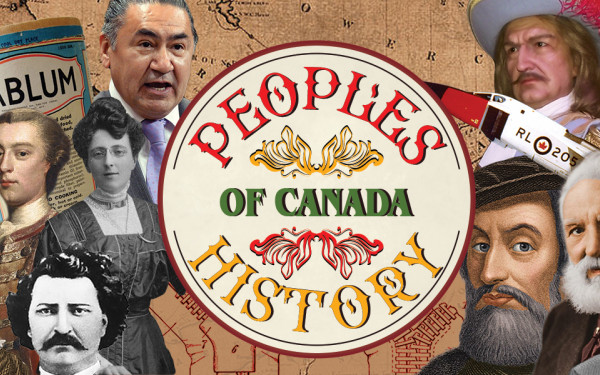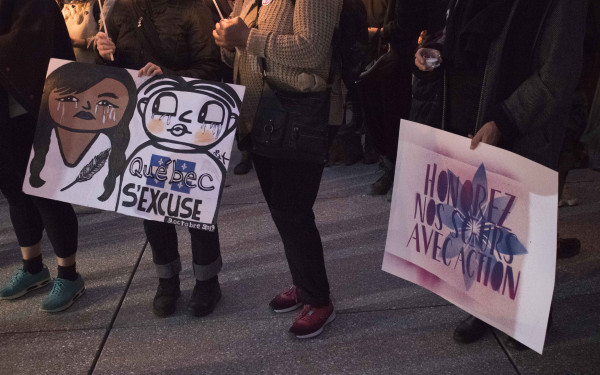Reproductive Justice Activists Hold “Uterus Pageant” in Solidarity with New Brunswick
Participants Gathered to Denounce the Lack of Access to Reproductive Services in Canada
Seven pink, red, multicoloured and glittery uteruses danced and sang in a “uterus pageant” at Parc Émilie-Gamelin Saturday afternoon.
They and about 40 other people gathered to denounce the lack of access to reproductive services in the country, especially in New Brunswick, where the province’s only abortion clinic closed due to a lack of funding shortly before candidates began their campaigns for its provincial election, which saw Liberal leader Brian Gallant elected overnight Monday.
“We want to just be saying to the candidates who are running that we’re watching and we’re going to be paying attention to you once this new government is formed and if you don’t strike down these restrictive regulations, we’re going to make a fuss,” Julie Michaud of the Centre for Gender Advocacy told The Link at the rally.
The rally was one of many being held across the country and called for by the Abortion Rights Coalition of Canada.
“And we’re not going to stop drawing attention to these injustices until these paternalistic regulations are done away with,” added Michaud.
Janelle LeBlanc, an abortion-rights activist from New Brunswick, relayed the access issues in her province, where two doctors must concede that an abortion is medically necessary for a woman to get the procedure in one of the two hospitals offering it.
Without the two-doctor approval and with the clinic closed, many women must travel out of province, often to Montreal, to get an abortion.
She also cited the main candidates’ positions on the subject, saying the current premier is for keeping the current provisions, while the Liberal contender, Brian Gallant, said his party would look over them. The NDP and Green Party have both said they would do away with the rule.
“There’s also plenty of proud anti-choice candidates who have publicly stated anti-choice statements,” LeBlanc said. “Who knows—we may be back here in a few weeks.”
Following the speeches, the seven women wearing large paper bags decorated with painted pictures of the female reproductive system—uteri, ovaries and so on—climbed on the stage for the “uterus pageant.”
There was a rainbow flag uterus with the shape of the organs outlined by rhinestones, placards reading “Pussy Power,” and brown-eyed Susans glued onto the drawing of a uterus. Michaud asked each of the women a question about their opinions of misconceptions about abortion and reproductive rights.
LeBlanc said she’d be glad to offer the Liberal leader some ideas on improving the province’s current abortion regulations.
“I’d be glad to discuss over a drink,” she joked of blond-haired Gallant.
3_700_1050_90.jpg)
All of the contestants won because “all uteruses deserve to have the same access to all of the different reproductive choices they might want to make,” Michaud told the crowd.
Writer, activist and the Centre’s campaign coordinator Maya Rolbin-Ghanie spoke to the crowd to clarify the concept of reproductive justice’s wide approach.
“It locates the fulfillment of sexual and reproductive autonomy in the larger sphere of social justice,” she said, explaining that the term was coined by organizations that promoted the rights of native women and women of colour in New York in the late ’80s.
“I would say that it’s necessary to support the leadership and power of the most excluded groups: excluded women of colour and girls of colour and indigenous communities within a culturally relevant context,” she said.
“What that looks like is complicated and takes work, but we all need to engage with it every step of the way.”
CORRECTION: This article originally misquoted Maya Rolbin-Ghanie as saying, “[…] in the larger sphere of reproductive justice,” instead of “social justice” and “within a culturally relative context,” instead of “relevant.” The article was modified to reflect Rolbin-Ghanie’s proper words.

1_900_691_90.jpg)
2_900_549_90.jpg)
_900_579_90.jpg)

2_600_375_90_s_c1.jpg)


_600_375_90_s_c1.jpg)